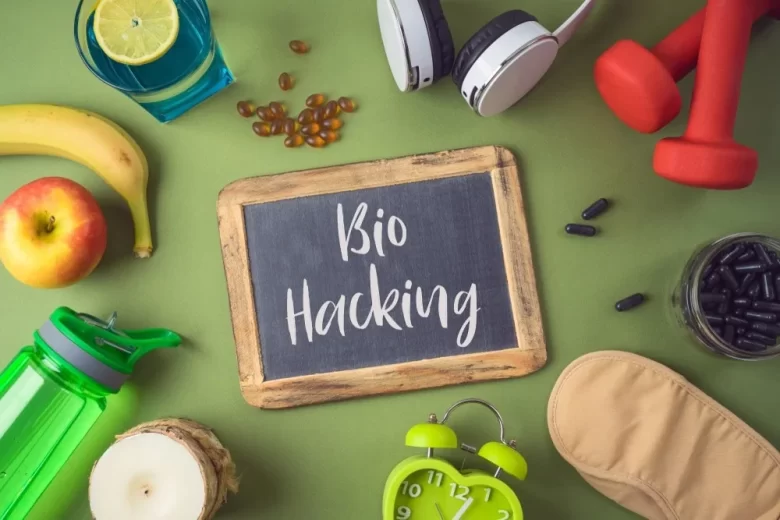Biohacking is a concept that combines biology and technology to optimise the body’s performance and health. At its core, biohacking aims to take control of your biology and achieve desired improvements, whether it’s boosting energy, enhancing cognitive function, or extending life expectancy. While it may sound futuristic, many aspects of biohacking are rooted in science and involve making small, deliberate changes to your lifestyle and diet. Specifically, following a biohacking diet is one of the most powerful ways to enhance both longevity and energy levels. This approach is about more than just keeping a balanced diet; it involves consciously eating foods that activate your body’s natural ability to function at its peak. Whether you’re an experienced biohacker or just curious about improving your health, the biohacking diet offers an achievable path toward vitality and sustained energy.
Core Principles of the Biohacking Diet
At the heart of every biohacking diet is the idea of personalisation. What works for one person might not work for another, as we all have unique genetics and physiologies. However, there are some shared principles that apply across the board. First, it’s important to consume nutrient-dense foods that maximise health benefits per calorie. Second, eating with the goal of optimising mitochondrial health—the powerhouse of your cells—is essential for firing up energy production and promoting longevity. Third, minimising inflammation plays a crucial role, as chronic inflammation has been linked to ageing and various diseases. Lastly, the diet focuses on gut health, given that gut microbiota directly impacts immunity, energy regulation, and even mood. By aligning your eating habits with these principles, you’re essentially giving your body the tools it needs to thrive.
Foods to Emphasize for Optimal Health
Whole, unprocessed foods are at the core of the biohacking diet. Fresh, organic vegetables—particularly leafy greens and cruciferous varieties like kale, broccoli, and spinach—are nutritional powerhouses full of antioxidants. Healthy fats such as avocados, nuts, seeds, and olive oil are key contributors to brain function and longevity. High-quality proteins, like wild-caught salmon, grass-fed beef, and pasture-raised eggs, support cellular repair and regeneration. Additionally, fermented foods like kimchi, sauerkraut, and kefir are highly beneficial for gut health, introducing probiotics that can boost digestive and immune health. Superfoods, such as blueberries, cacao, and turmeric, deliver a wealth of bioactive compounds that enhance your health and vitality. Hydration is equally important, with mineral-rich water or herbal teas often included as part of the daily regimen to maintain balance and detoxify the body.
Foods to Limit or Avoid
While certain foods should be emphasised, others need to be minimised—or altogether avoided—to achieve the goals of this biohacking diet. Heavily processed foods, sugary snacks, and refined carbohydrates are typically inflammatory and provide minimal nutritional value. Industrial seed oils like canola, soy, and corn oil are known to trigger oxidative stress and should be replaced with healthier fats. Reducing alcohol intake is also strongly advised, as it can negatively affect liver function, sleep, and cognitive health over time. Conventional dairy, unless fermented and sourced from clean origins, is often avoided due to its potential to cause inflammation and gut issues. Artificial sweeteners, preservatives, and excess sodium commonly found in prepackaged foods have no place in a diet designed to enhance energy and longevity. By cutting back on these items, you’ll reduce the toxic burden on your body and make room for more nutrient-rich choices.
Meal Timing and Frequency
Timing your meals strategically can amplify the benefits of the biohacking diet. Practices like intermittent fasting are widely used, where individuals limit their eating windows to 6–10 hours a day. By fasting for extended periods, your body switches into a state known as autophagy. This is when it begins to clear out damaged cells, boosting cellular repair and longevity. Some people opt for time-restricted feeding, where you eat according to your body’s circadian rhythm, ensuring your meals align with active digestion periods. Another option is periodic fasting, involving days of very low-calorie intake to stimulate rejuvenation pathways. Eating smaller, nutrient-dense meals can also help stabilise blood sugar levels and sustain energy throughout the day. The goal is to avoid erratic eating habits that stress the digestive system and shift toward patterns that support balance and healing.
Supplements to Enhance Energy and Longevity
Supplements complement the biohacking diet, filling in any nutritional gaps and providing extra support for your body’s systems. Omega-3 fatty acids, often sourced from fish oil, are critical for brain function and reducing inflammation. Antioxidants like vitamin C, vitamin E, and glutathione fight oxidative stress, which accelerates ageing. Adaptogens such as ashwagandha and rhodiola can help modulate stress and enhance energy levels naturally. For mitochondrial health, CoQ10 and NAD+ precursors like nicotinamide riboside are popular choices. Probiotics improve gut health, while magnesium and zinc support muscle function, immunity, and cellular repair. However, it’s crucial to choose high-quality, research-backed supplements and consult an expert before adding them to your routine. Supplements are not meant to replace a healthy diet but to enhance it, acting as additional tools in your wellness toolbox.
Monitoring and Adjusting Your Diet
No diet is a one-size-fits-all solution, and the biohacking diet is no exception. Monitoring your body’s responses and adjusting your dietary plan accordingly is vital for long-term success. Wearable devices and tracking apps can help you measure key health metrics, such as blood sugar levels, heart rate variability, and sleep quality. It’s also beneficial to track your energy levels, mood, and cognitive function to identify patterns and make tweaks. Regular blood tests can offer greater insights into your nutrient levels, hormone balance, and markers of inflammation. These results can guide adjustments to your diet and supplement regimens. Remember, biohacking is an iterative process, and ongoing experimentation will allow you to discover what works best for your unique biology.
Conclusion
The biohacking diet is more than a meal plan; it’s a gateway to enhanced energy, resilience, and longevity. By emphasising nutrient-dense foods, adopting mindful eating habits, incorporating supplements, and constantly refining your approach, you can unlock your full biological potential. This is your opportunity to take control of your health and perform at your peak. Begin with small changes and watch how they add up over time to create a transformational impact on your life.
FAQs
1. What is the ultimate goal of a biohacking diet?
The primary goal is to improve overall health by optimising energy, reducing inflammation, and promoting longevity through scientifically backed dietary choices.
2. Can anyone follow a biohacking diet?
Yes, but as with any major diet changes, it’s wise to consult with a healthcare professional, especially if you have existing medical conditions.
3. Is fasting mandatory in a biohacking diet?
No, fasting is not mandatory. It can be a helpful tool for some individuals, but the diet should be adaptable to suit your unique needs and lifestyle.
4. Are supplements essential for the biohacking diet?
While supplements are not mandatory, they are valuable for addressing specific deficiencies or enhancing certain bodily functions.
5. How long does it take to see results?
Results can vary, but many people notice improvements in energy and mental clarity within weeks. Long-term benefits, such as improved longevity and metabolic health, take longer to manifest with consistency.




